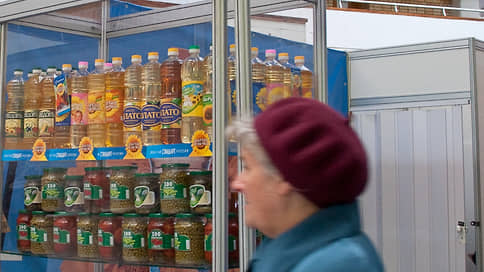“South of Rus'” has shifted to the east
[ad_1]

The growth of trade between Russia and China stimulates agricultural holdings to consider development opportunities in the Far East. Thus, Yug Rusi, a major producer of vegetable oils, became interested in buying the Komsomolets breeding plant, which manages about 188,000 hectares of agricultural land in Transbaikalia. Integrating a distant business into the group can be difficult, and the prospects for the development of agricultural exports to China remain in doubt.
The structure of the Yug Rusi Group of Companies received the preliminary consent of the Federal Antimonopoly Service (FAS) for the acquisition of 100% of Komsomolets Breeding Plant JSC. The decision is published in the FAS database. The South Rus Group of Companies and Komsomolets did not provide any comments. Kommersant’s interlocutor on the market clarifies that, despite the consent of the FAS, there is still no agreement on closing the deal between the parties.
According to BEFL, Komsomolets had 188 thousand hectares of agricultural land in mid-2022 and the company was in the top 30 large owners of agricultural land. It grows oilseeds and grains in Transbaikalia, including for export to China. In 2020, rapeseed was the main crop for Komsomolets, and it also grew wheat, barley, oats, and flax. At the end of 2022, Konstantin and Valery Nageli owned 50% of the shares. Konstantin Nagel was engaged in gold mining and was a deputy of the legislative assembly of the Trans-Baikal Territory of the first convocation. In March 2023, the businessman died, the regional parliament reported.
Yug Rusi is one of the main producers and exporters of vegetable oils in Russia. It unites nine oil plants, the largest of which is located in Rostov-on-Don. In the 2021/22 season, Yug Rusi provided 12% of the output of crude sunflower oil and 28% of bottled oil, according to a report by the Rusagro group.
In 2022, Komsomolets faced difficulties: difficult weather conditions led to the postponement of the harvesting campaign and violations of shipments to customers. In addition, in 2022, there were increased duties on rapeseed exports of 30%, shipments to China were disrupted due to pandemic restrictions, and tightening Western sanctions led to an increase in production costs, the company said in a statement. In March 2023, Valery Nagel told the industry publication Agroinvestor that Komsomolets had problems with funds for the sowing campaign.
Yug Rusi previously owned about 200 thousand hectares of agricultural land in different regions of the country, having sold this business in 2022 to Agrotechnologies LLC from Krasnodar. Sources of “Kommersant” said that the company acts in the interests of the Agrocomplex. N. I. Tkachev ex-head of the Ministry of Agriculture Alexander Tkachev. In the “South of Rus'” they indicated that the buyer was an independent organization. In 2022, according to the tax service, Agrotechnologies spent 34.6 billion rubles on the acquisition of shares in companies.
Andrey Sizov, the director of Sovecon, does not exclude that it is interesting for Yug Rus to integrate into the history of the development of relations and trade between Russia and China, which is popular today, counting on maintaining the possibility of exporting rapeseed from the Trans-Baikal Territory. The export of rapeseed from Russia is prohibited until August 31, 2023, but deliveries through the Zabaikalsk checkpoint were possible until March 31. As Mr. Sizov notes, Yug Rus has long been interested in entering the Far East, a few years ago the group had a project to process soybeans and oilseeds in Primorye.
Director General of the Institute for Agricultural Market Studies Dmitry Rylko notes that there is potential for the growth of agricultural exports to China, and rapeseed in Transbaikalia may be one of the few crops of interest to large agricultural holdings. But, says Andrei Sizov, due to the remoteness from the European part and the south of the Russian Federation, it will be difficult to manage an agricultural holding in this region. In addition, he adds, despite political statements, China is still in no hurry to remove restrictions on the supply of Russian food, including wheat and pork.
[ad_2]
Source link





